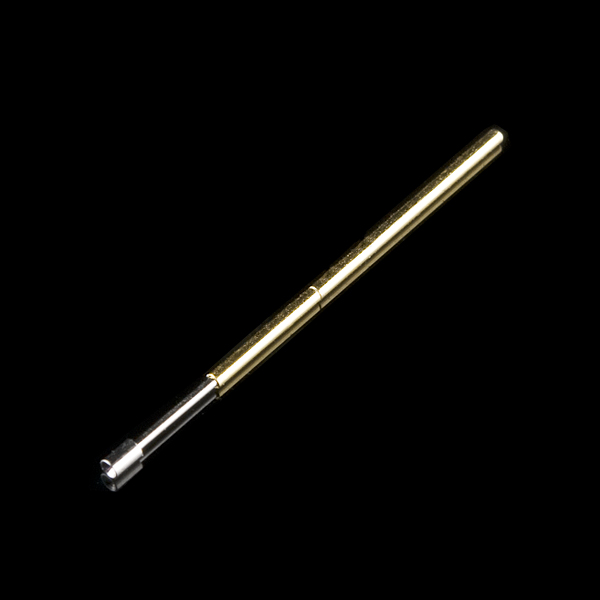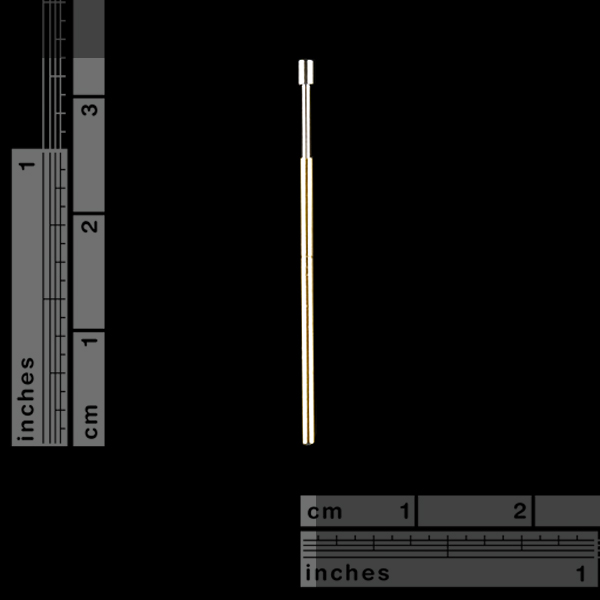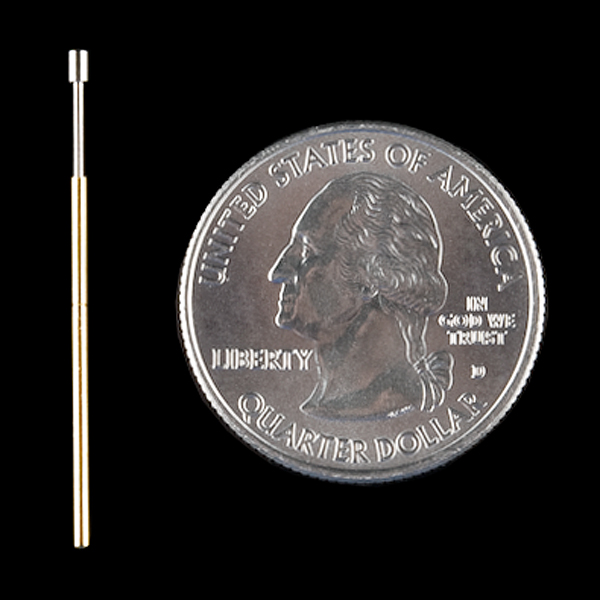These 33mm (1.3") spring loaded pogo pins are great for programming and applications where you don't always want headers soldered onto your boards. We use them for our programming jigs in production. The pins fit snugly into most standard perf board holes. Solder them just like you would normal wire.
- Length: 1.3" (33mm)
- Travel: 1/4" (6.5mm)
- Head size 0.06" (1.5mm)
- Dimensional Drawing (PP4)
Pogo Pin w/ Concave Tip Product Help and Resources
Constant Innovation in Quality Control
December 11, 2013
In this article, we share our recent advancements in quality control. Along with making our tests more thorough, we have also made them more efficient and robust.
Core Skill: Soldering
This skill defines how difficult the soldering is on a particular product. It might be a couple simple solder joints, or require special reflow tools.
Skill Level: Noob - Some basic soldering is required, but it is limited to a just a few pins, basic through-hole soldering, and couple (if any) polarized components. A basic soldering iron is all you should need.
See all skill levels
Comments
Looking for answers to technical questions?
We welcome your comments and suggestions below. However, if you are looking for solutions to technical questions please see our Technical Assistance page.
Customer Reviews
No reviews yet.




Why is there a notch 1/3 of the way up the gold part of the pin? It seems pretty silly to have that on a part that is specifically designed to take repeated pressure.
I tried using these and they snapped off at that spot before I had even used them once. They just break open and the spring flies away.
It has to serve some purpose, but what? Is there a notch-less version that I should be aware of?
More likely, I think it is the crimp for retaining the spring. The whole pin appears to be hollow (look at the rounded end up close). Might be a good idea to put a little solder around that in order to beef it up a little.
It could be intended as a breakaway, so the pogo pin breaks before your board does.
How much force did you use before it broke?
This will work great if you want to connect to a dip chip thats already soldered to a board.
A more creative application I've seen is from a fellow who is heavily into modifying joysticks for video game systems and he sells a custom pcb with snap clips that hold this particular joystick's pcb in place and the pogo pins are positioned to cup the solder points of the signals you would need to tap into and piggy back the signals to a pcb for a different game console. I'm sure some of you are familiar with this practice referred to as dual modding. Essentially it is making a joystick that only works on one console (ie xbox 360) capable of functioning on multiple consoles (add playstation 3 support). So you get about 20 signals tapped into via pogo pins and on the other end of the board isan IDE ribbon cable output that would carry each signal.
Have a look: http://shoryuken.com/f177/official-teasy-thread-teasy-strike-here-234867/
What situation would you want a concave pogo pin for, as opposed to the pointed/round/chiseled? I'm sure there's a good use for them, I just can't think of it.
my best guess would be to contact a pin that's already on the board, when you don't want it slipping off (point on point == bad)
I think you mean "= bad". == is part of an If (and If/else) condition. A single = is the assignment operator.
That makes perfect sense, and now I can think of a couple times I've needed these! Thanks :)